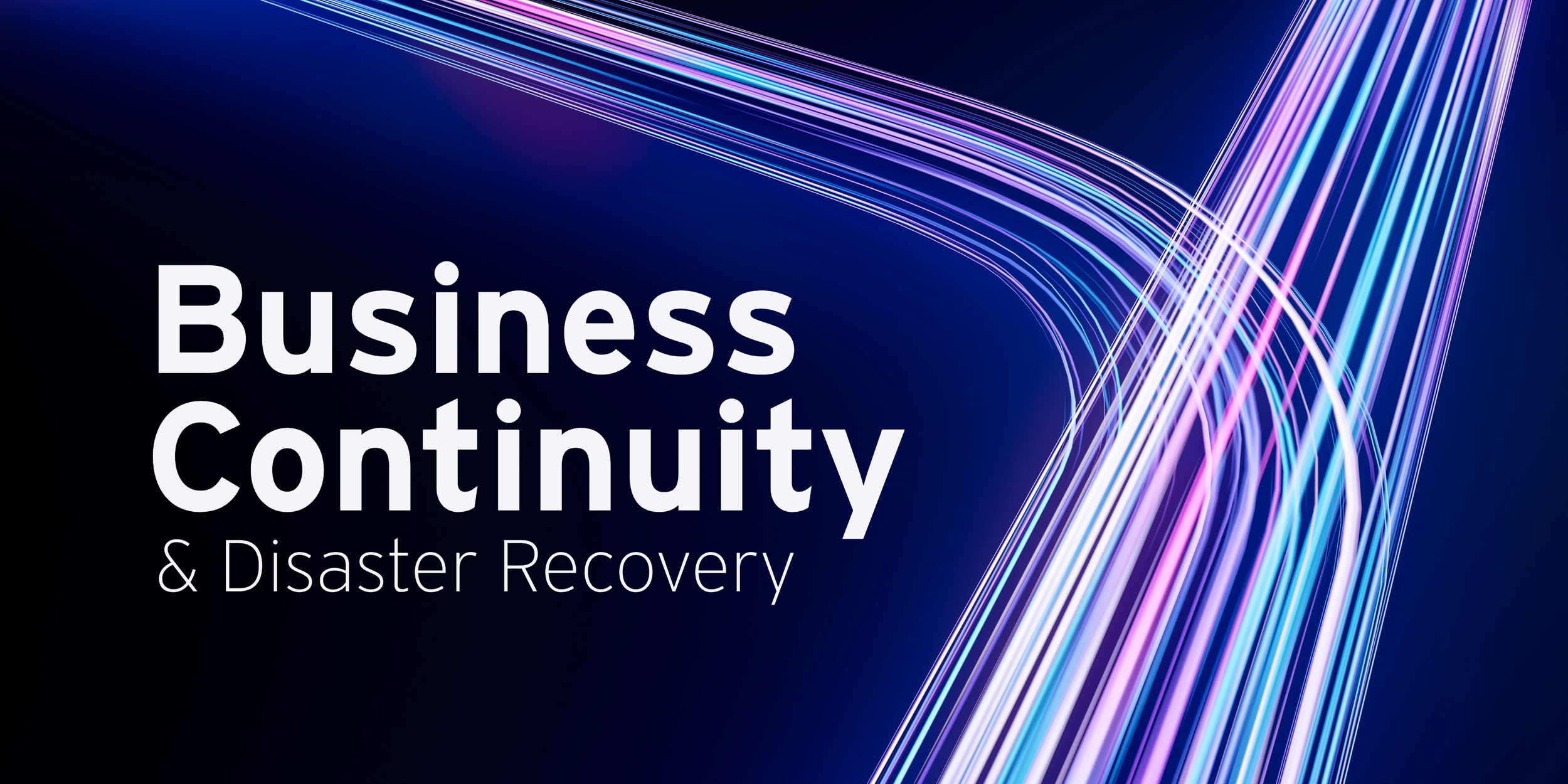
Disruptions happen—whether it’s a cyberattack, natural disaster, or unexpected emergency. Without a solid plan, even a brief interruption can threaten your people, your operations, and your reputation.
Business continuity planning ensures your organization can keep moving, no matter the crisis. It’s not just about protecting assets—it’s about taking care of your employees, maintaining customer trust, and preserving everything you’ve built.
With the right strategy in place, you can recover faster, access critical data without delay, and maintain communication when it matters most. The result? Less downtime, fewer losses, and a business that’s ready for anything.
A Business Continuity Plan (BCP) is more than just a document—it’s a practical roadmap for how your business will respond to and recover from disruptions. A strong plan includes the following essential components:
Risk Assessment & Business Impact Analysis (BIA)
Understand what could go wrong—and what’s at stake.
This step identifies potential threats (like cyberattacks, disasters, or supply chain failures) and evaluates how they would affect critical operations. The goal is to prioritize what matters most and understand the consequences of downtime.
Essential Functions & Critical Resources
Pinpoint the operations your business can’t afford to lose.
This includes identifying the processes, personnel, systems, vendors, and tools that must stay functional to keep your business running—even in a crisis.
Recovery Strategies
Lay out the steps to restore operations quickly and effectively.
Whether it’s relocating to an alternate site, shifting to remote work, or switching to backup suppliers, this section details your plan to minimize downtime and financial loss.
Communication Plan
Keep your people informed when it matters most.
Clear communication is critical during disruptions. This component outlines how you'll notify employees, customers, partners, and stakeholders—with templates and protocols for different scenarios.
Roles & Responsibilities
Everyone has a job to do—make sure they know what it is.
Your plan should define who leads each part of the response, including backup contacts and succession plans, so decisions don’t stall under pressure.
Plan Maintenance & Testing
A plan is only effective if it’s current and practiced.
This includes scheduled reviews, regular updates, and guidance for running drills or tabletop exercises to validate the plan and build team confidence.
-
Every effective continuity plan begins with an informed, impartial assessment. We help you ask the right questions, uncover overlooked vulnerabilities, and anticipate emerging risks—so you’re prepared not just for what’s likely, but for what’s possible.
-
Once we identify your risks, we develop focused strategies to keep your operations running—even in a crisis. Whether it’s enabling remote work, securing data, or sourcing alternative suppliers, each solution is tailored to your business to minimize impact and maximize agility.
-
Even the best-crafted plans can fall short without clear, actionable guidance. That’s why we deliver a roadmap your team can follow through every stage of disruption—before, during, and after. Just as critically, we design with your culture in mind, so your plan feels intuitive, earns trust, and gets used when it matters most.
-
Plans don’t save businesses—people do. That’s why we equip your team with the tools, guidance, and proven methodology to run meaningful drills, tabletop exercises, and real-time simulations. It’s a practical way to test your plan, refine it, and build the confidence to act when every moment counts.
-
Your business doesn’t stand still—and neither should your continuity plan. As operations, risks, and company culture evolve, we help you stay ahead with proactive updates that reflect where you’re going, not just where you’ve been. The result? A living strategy that grows with you and keeps your team ready for whatever’s next.
If building a business continuity plan were easy, every business would already have one. But the reality is, many owners feel overwhelmed by the complexity and time it takes to create a plan that truly protects their operations. Day-to-day demands often take priority, pushing preparedness to the back burner. The risk? Even a minor disruption can trigger major consequences—costly downtime, lost customers, and long-term damage to your reputation.
That’s where Freecore Security & Risk Consultants comes in. We break down the process into clear, manageable steps—so you can stop spinning your wheels and start building a plan that gives you confidence in the face of the unexpected.
For many small businesses, the first hurdle is not knowing what threats they’re facing. It’s tough to plan when you're unsure what to prepare for—or why it matters. At Freecore, we help you identify your unique risks and walk you through building a plan that fits your operations and culture. Preparedness doesn’t have to be overwhelming—especially when you’ve got the right partner by your side.
We specialize in helping small businesses build real resilience—so they don’t just survive disruptions, they thrive through them. Whether you're an established brick-and-mortar or a fast-moving startup, our solutions are tailored to fit the way your business actually works.
We believe effective continuity starts with a deep understanding of your operations. That insight—combined with our experience—allows us to craft practical strategies that integrate seamlessly into your day-to-day, minimizing disruption and maximizing efficiency when it matters most.
From risk identification to recovery strategies, we guide you through every step. Our strategic plans are precise, actionable, and built to keep your critical functions running. With the right tools and insights, we help make resilience a core part of your business—not an afterthought.
Subscribe for free to CoreGuard today and get essential insights, advice, and actionable tips delivered to your inbox every month—designed specifically for small businesses like yours.

Wednesday
9am - 5pm
Thursday
9am - 5pm
Connect with Us Online
9am - 5pm
Monday
9am - 5pm
Tuesday









